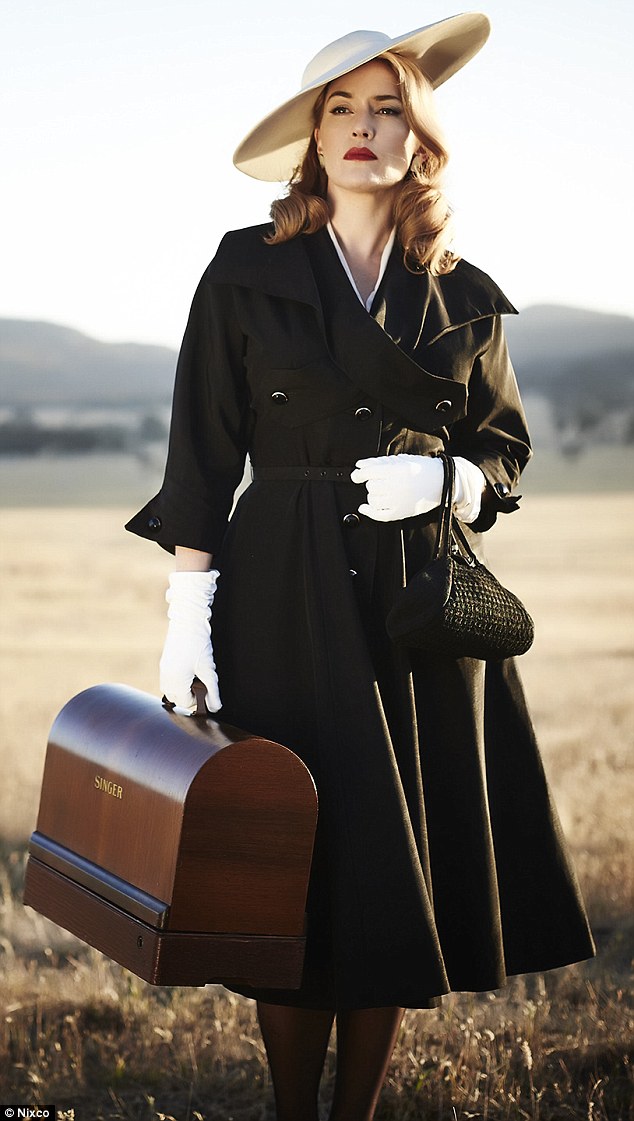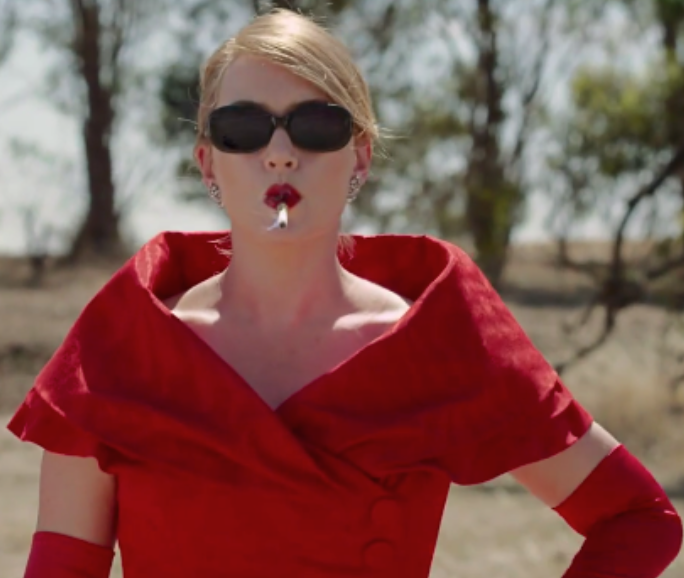 “The Dressmaker” is the first feature in twenty years by Australia’s Jocelyn Moorhouse, whose career is a hodge-podge that doesn’t quite hold up to critical scrutiny. Yet, like much of the director’s fare – most notably “How to Make an American Quilt” and “Proof” (the 1991 film with Russell Crowe, not the dour Gwynnie 2005 vehicle) – this adaptation of Rosalie Ham’s eponymous 2000 novel offers much more satisfaction than many films that are easier to admire.
“The Dressmaker” is the first feature in twenty years by Australia’s Jocelyn Moorhouse, whose career is a hodge-podge that doesn’t quite hold up to critical scrutiny. Yet, like much of the director’s fare – most notably “How to Make an American Quilt” and “Proof” (the 1991 film with Russell Crowe, not the dour Gwynnie 2005 vehicle) – this adaptation of Rosalie Ham’s eponymous 2000 novel offers much more satisfaction than many films that are easier to admire.
The inimitable Kate Winslet stars as the titular character, and it’s a role she was born to play. As Myrtle “Tilly” Dunnage, she’s returned to Dungatar, Australia, in the mid-1950s after years in Paris where she’s been working as a haute couture dress designer. Clad in a skin-tight sheath, aviator pumps, and a red-lipsticked snit, she offers the loveliest of contrasts to her dusty, claustrophobically tiny home village, where one seems to know what to do with her, least of all her mum Mad Molly (Judy Davis), who claims not to recognize the girl.
Slowly, a backstory emerges. Tilly was sent away at age ten for allegedly killing a schoolmate, and she’s keen to discover what really happened as she can’t recall any details about the event that has left her feeling eternally cursed. (All her lovers have a terrible habit of dropping dead.) The problem: No one is willing to talk to her, let alone fill her in. (Those, ahem, drop-dead looks don’t seem to help her cause.) To break down everyone’s defenses – and to support Molly, a senile crank if ever there were one – she begins to work as the local dressmaker, transforming the town’s dowdiest prisses into Fellini sirens sewn into brilliantly hewed satin and silk. Anyone who’s lovingly paged through a September Vogue or pored over Glamour Magazine’s “dos and don’ts” will find these sequences irresistible. I was drooling.
All good things come to Tilly via her needle and thread. They bond her with cross-dressing police sergeant Hugo Weaving, a handy ally under the circumstances, and they lead her to Teddy (Liam Hemsworth), the laborer who’s helped Molly in her absence and who needs a new suit. Talk about drool: A scene in which Tilly measures the Adonis’s naked torso while he murmurs in a low, husky voice shouldn’t by any logic work as well as it does. A scene in which they squire a drunk, snorting Molly to a screening of “Sunset Boulevard” is a fantastic meta-movie moment; you really feel how cinema reframed the whole world in the mid-twentieth century – even a backwater burg still bathed in red dirt and kerosene light.
The plot veers from here, and then again and again in blood-curdling turns and twists that strain your neck as well as any sense of credibility. On the hunt for her own true story, Tilly exposes such town secrets as adultery, addictions, and madness, and no one’s especially enthused about it – not the religious zealot of a town chemist (Barry Otto), not the bitter schoolmarm (Kerry Fox) who accused Tilly of smashing a fellow student’s head, and not the dead boy’s father,  Evan Pettyman (Shane Bourne), the councilor of Dungatar who cheats on his morphine-addled wife (Alison Whyte) with the crappier local dressmaker and who shares a charged past with Molly. When the conclusion finally arrives, it feels like a coda to another film, but it’s one I also like – lurid, aflame, and empowering in an Angela Bassett-with-her-hand-on-her-hip sort of way.
Evan Pettyman (Shane Bourne), the councilor of Dungatar who cheats on his morphine-addled wife (Alison Whyte) with the crappier local dressmaker and who shares a charged past with Molly. When the conclusion finally arrives, it feels like a coda to another film, but it’s one I also like – lurid, aflame, and empowering in an Angela Bassett-with-her-hand-on-her-hip sort of way.
None of this would be any good without Davis and Winslet at the helm. Unlike many Hollywood actors of her generation, Davis had leaned right into her late middle age, and she finds sympathetic shadings in a character that so easily could have been a stereotypical shrew. Really, though, this is Winslet’s world. Her grown-up lady curves, her generous features, her unique cocktail of impatience and compassion: They’re all as wonderfully incongruous as this swoon of a film.
This was originally published on Signature.
